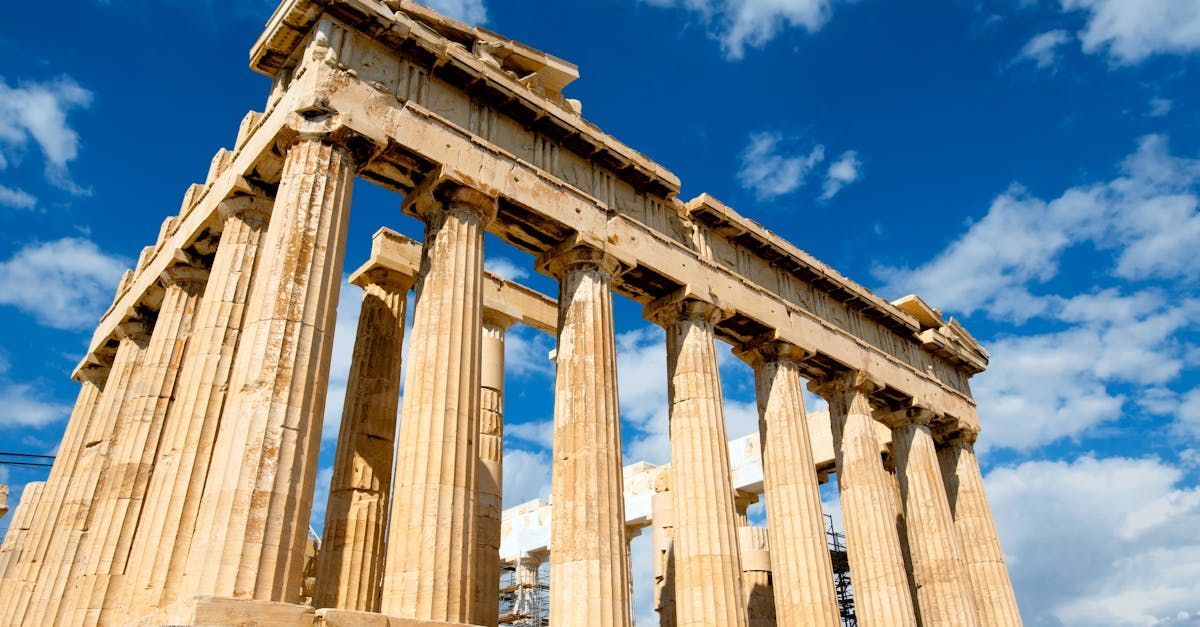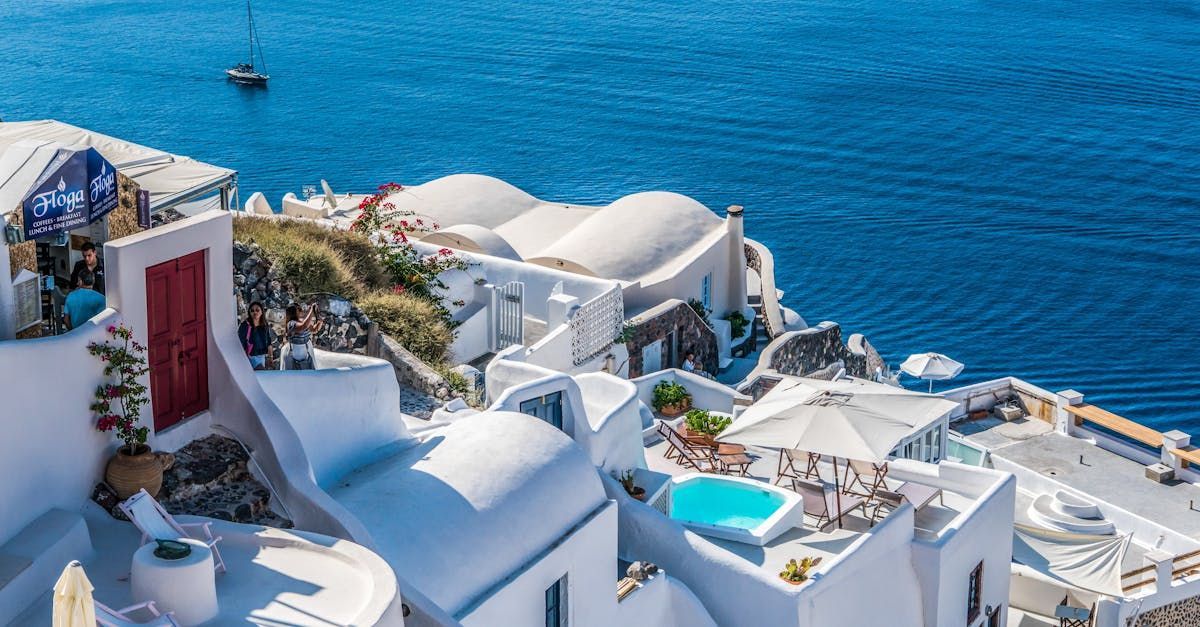Life In Greece
Greece, a southeastern European country, boasts a rich history, stunning landscapes, and a vibrant culture. Known as the cradle of Western civilization, Greece offers a unique blend of ancient and modern life. The capital, Athens, is home to iconic landmarks like the Acropolis and Parthenon, reflecting its classical heritage.
Greek life is characterized by strong family ties, a leisurely pace, and a deep appreciation for tradition and hospitality. The Mediterranean climate provides hot, dry summers and mild, wet winters, making outdoor activities and a relaxed lifestyle popular.
Greek cuisine, famous for its emphasis on fresh, local ingredients, includes staples like olive oil, feta cheese, and olives, with dishes such as moussaka, souvlaki, and baklava. Social life often revolves around cafes and tavernas, where people gather to enjoy food, drink, and conversation.
Economically, Greece has faced challenges, particularly after the financial crisis of 2008, but tourism remains a vital sector, drawing millions to its picturesque islands and historic sites. The Greek education system is well-developed, with compulsory education until age 15. Healthcare is accessible, though there are disparities between urban and rural areas. Overall, life in Greece is marked by a blend of historic pride and a resilient, community-focused spirit.
History & Culture
Greece, the cradle of Western civilization, has a rich history dating back thousands of years. Ancient Greece, flourishing around the 5th century BCE, significantly influenced Western philosophy, politics, science, and arts. Philosophers like Socrates, Plato, and Aristotle laid the groundwork for Western thought, while the democratic principles of Athens inspired modern governance.
Greek culture is deeply rooted in mythology, with gods and heroes like Zeus, Athena, and Hercules playing central roles in literature and art. The ancient Olympic Games, originating in Olympia, symbolized the Greek ideal of a sound mind in a sound body.
The Byzantine Empire and the subsequent Ottoman rule also shaped Greek culture, evident in its architecture, cuisine, and religious practices. The War of Independence in the 19th century marked the resurgence of Greek sovereignty, leading to the establishment of the modern Greek state in 1830.
Greek culture today remains vibrant, characterized by strong family ties, traditional music and dance, and festivals celebrating religious and historical events. The Greek Orthodox Church plays a significant role in daily life, preserving customs and fostering community bonds.

Economy
Greece's economy is diverse, with key sectors including tourism, shipping, agriculture, and manufacturing. Tourism is a major economic driver, attracting millions annually to its ancient ruins, scenic islands, and Mediterranean beaches. The country has a significant shipping industry, with one of the largest merchant fleets globally. Agriculture, producing olives, olive oil, fruits, vegetables, and wine, remains important. The economy faced severe challenges during the 2008 financial crisis, leading to austerity measures and structural reforms under international bailouts. Recent years have seen gradual recovery, though economic challenges persist.
Living Expenses
Living expenses can vary significantly depending on the city and lifestyle. Athens, being the capital, tends to be more expensive than smaller cities and rural areas.
Housing
- Rent (Monthly):
- One-bedroom apartment in city center: €400-€600
- One-bedroom apartment outside city center: €300-€450
- Three-bedroom apartment in city center: €700-€1,200
- Three-bedroom apartment outside city center: €500-€800
Food
- Groceries (Monthly for one person):
- Basic groceries: €150-€250
- Dining out (per meal):
- Inexpensive restaurant: €10-€15
- Mid-range restaurant (three-course meal): €20-€35
Utilities
- Monthly Utilities (Electricity, Heating, Cooling, Water, Garbage) for an 85m2 apartment:
- Basic utilities: €100-€150
- Internet (60 Mbps or more, Unlimited Data, Cable/ADSL): €25-€35
Transportation
- Public Transport:
- One-way ticket (local transport): €1.20-€1.40
- Monthly pass: €30-€50
- Taxi Start (Normal Tariff): €3.50
- Gasoline (per liter): €1.70-€2.00
Currency
Greece uses the euro (€) as its official currency, which it adopted in 2001, replacing the drachma. The euro facilitates trade and economic stability within the Eurozone, though it also limits Greece's ability to conduct independent monetary policy.
Travel & Tourism
Greece is a premier travel destination, renowned for its rich history, stunning landscapes, and vibrant culture. Tourists flock to iconic ancient sites such as the Acropolis in Athens, the Temple of Apollo at Delphi, and the Palace of Knossos in Crete. The country’s idyllic islands, including Santorini, Mykonos, and Rhodes, offer breathtaking beaches, crystal-clear waters, and picturesque villages.
Greece’s diverse geography provides a variety of experiences, from hiking in the mountainous regions of Meteora and Mount Olympus to exploring the lush landscapes of the Peloponnese. Greek cuisine, with its emphasis on fresh, local ingredients, is a highlight for many visitors, featuring dishes like moussaka, souvlaki, and baklava.
Tourism infrastructure is well-developed, with a range of accommodations from luxury resorts to budget-friendly options. Warm hospitality and a welcoming atmosphere enhance the travel experience. Seasonal festivals, traditional music, and dance add cultural richness to any visit, making Greece a captivating destination year-round.

a b c d e f g h i j k l m n o - Do not remove from template!!! it is important to support different fonts
ML Glory Serbia
Maskima Gorkog 10A, 21000 Novi Sad, Serbia
Office : +381 21 300 9841
Mobile : +381 61 288 2784
ML Glory Sri Lanka
No:152, Meegahawatta, Delgoda, Sri Lanka
Office : +94 112 978 444
Mobile : +94 770 730 550
Glorious Together HR Consultancy Services LLC
02/2202, Best Vision Business Center,
The Metropolis Tower,
Business Bay, Dubai
Find Us Here
SERBIA | SRI LANKA | UAE | ROMANIA | USA | CROATIA | GREECE
All Rights Reserved | ML Glory Employment Agency

